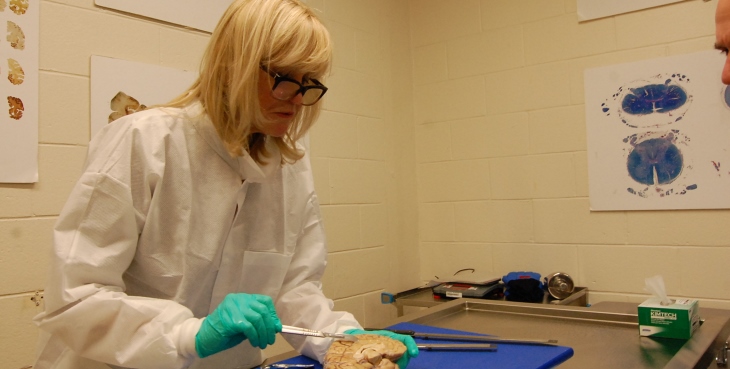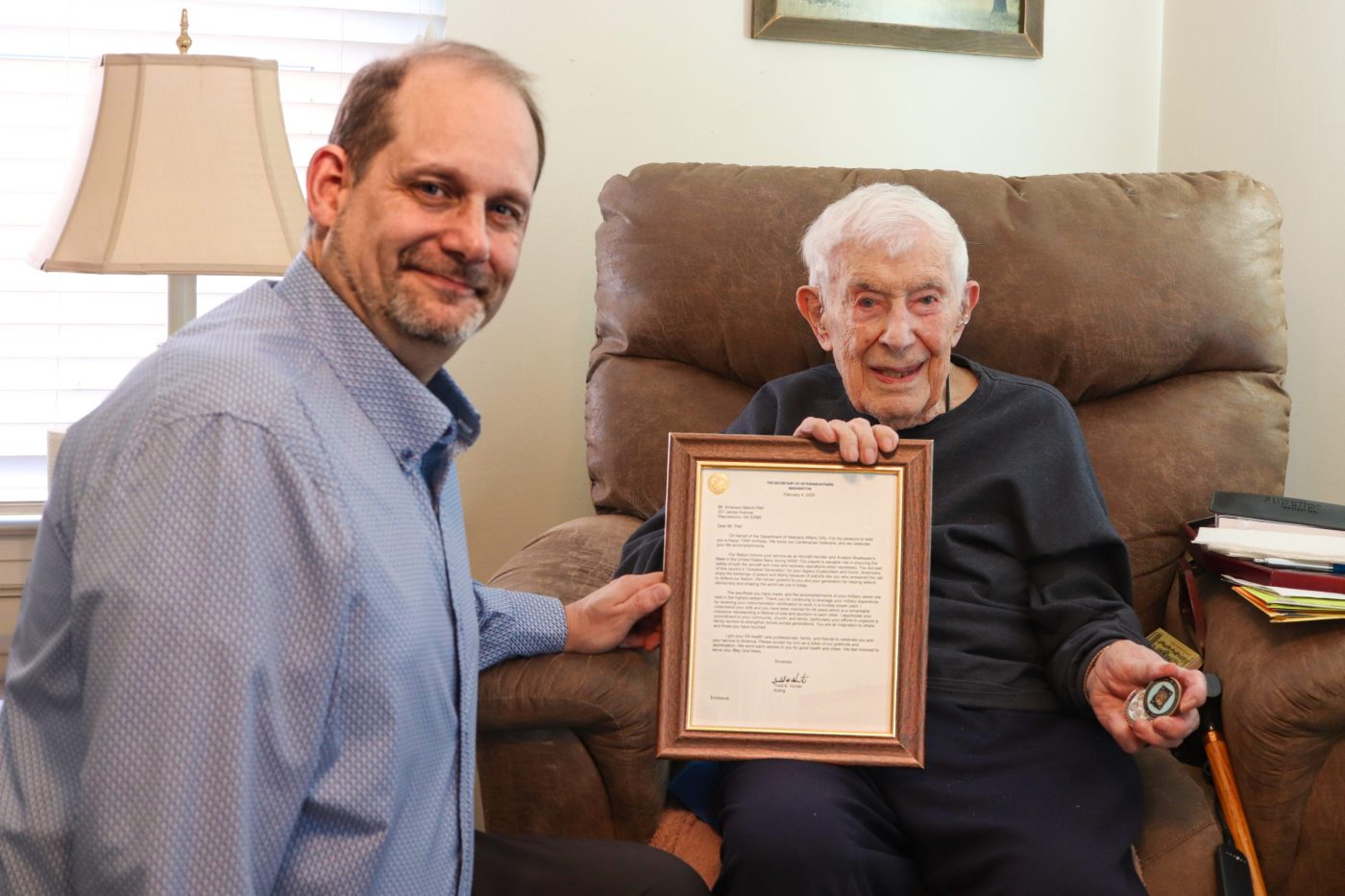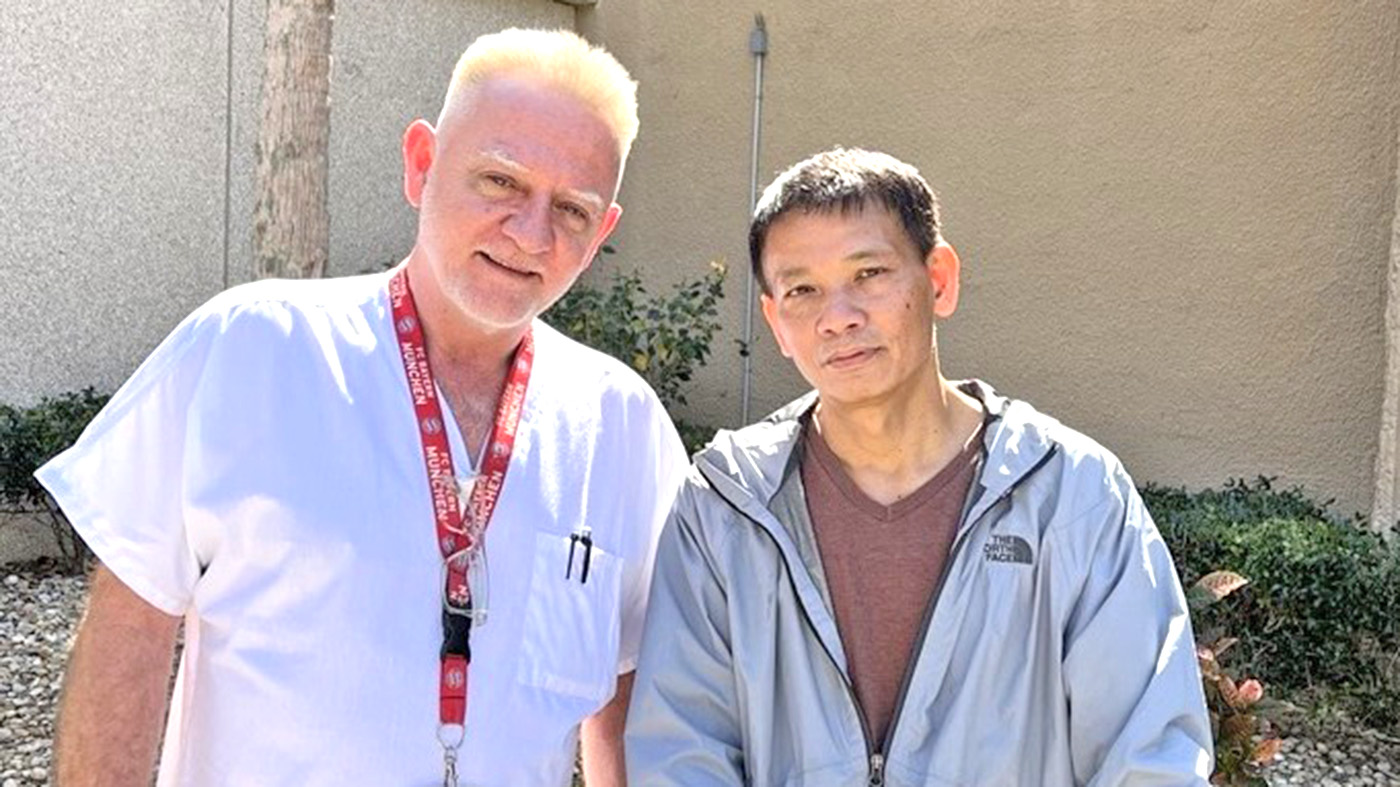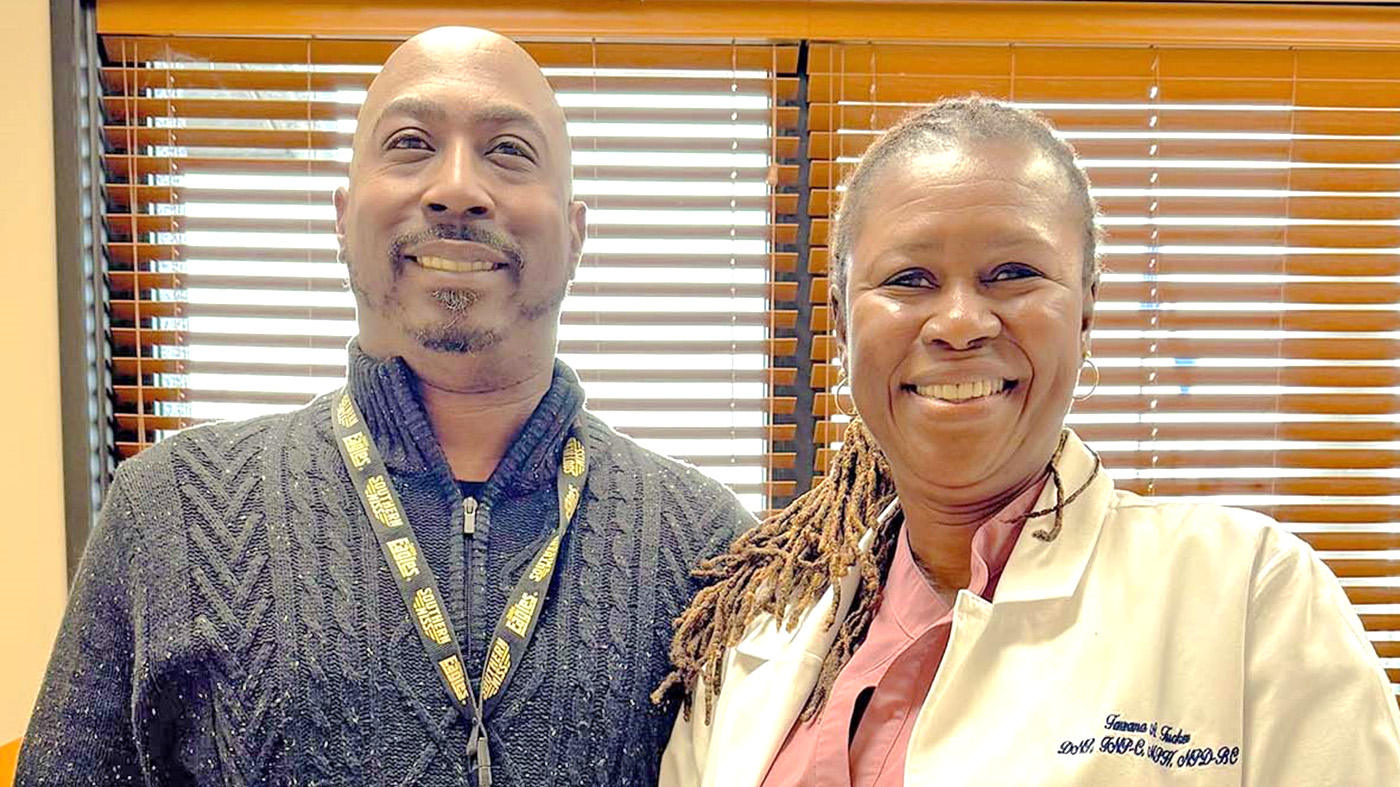TIME magazine has named Dr. Ann McKee, chief of neuropathology of the VA Boston Healthcare System, to its 2018 TIME 100, an annual list of the 100 most influential people in the world.
McKee, who is also the director of Boston University’s Chronic Traumatic Encephalopathy (CTE) Center, is well known for her research on the long-term effects of brain injuries in NFL football players and military Veterans. Last year, McKee received international attention for her break-through study that found CTE in 99 percent of NFL players, 91 percent of college players and 21 percent in high school players.
McKee’s research focuses on the long-term effects of concussions and blast injuries occurring in contact sports athletes and military Veterans.
“There are many parallels between concussive injury experienced during contact sports and exposure to blast and concussive injury experienced by Veterans,” McKee said in a 2017 interview for Vantage Point. “In addition, many Veterans are athletes, and play football, soccer, baseball, volleyball or participate in boxing. Our research shows that the long-term effects of concussive and blast injuries on the brain can be very similar, regardless of how the brain injuries occurred.”

TIME magazine has named Dr. Ann McKee, chief of neuropathology of the VA Boston Healthcare System, to its 2018 TIME 100, an annual list of the 100 most influential people in the world.
Her research has revealed that “mild” head trauma, particularly repetitive mild head trauma, is not just a mild injury, but that it can lead to persistent and progressive neurodegeneration that continues long after the physical trauma occurred.
A key resource in her research is the VA – Boston University – Concussion Legacy Foundation brain bank, the world’s largest repository of brains from those exposed to traumatic brain injuries. The brain bank is directed by McKee and is located at the Bedford VA Medical Center. It is now the largest sports brain injury and CTE repository in the world with more than 550 brains donated and over a thousand more pledged.
“The absolutely best way to understand the long-term effects of repetitive head impacts, concussion and blast injury on the brain is to thoroughly analyze the brains of individuals who have died,” McKee explained. “By identifying the earliest changes of CTE and understanding how and where it begins in the brain, we are hoping to find a way to stop or reverse it; that is, a way to effectively treat CTE. Right now, our major research focus is on ways to diagnose early CTE in living individuals and how to treat CTE once it has begun.”
“The research on CTE all started with VA; it began with a VA patient who was a well-known boxer and from that first case of CTE, it has morphed into a tremendous research effort involving NIH, DoD and many other organizations,” said McKee. “This is not a problem we can solve in any one lab. It’s going to take medical researchers and scientists working with business to detect where it first starts – on the battlefield and sports field. We will need health assessments going into the future for many years. That will take innovation and real input from industry to stimulate this research. That’s why we need a collective effort and his group of leaders is so important. I’m proud to be here encouraging us all to work together to better care for America’s Veterans and patients.”
McKee was born and raised in Wisconsin. She holds an undergraduate degree from University of Wisconsin; a medical degree from the Case Western Reserve School of Medicine and completed her residency training in neurology at Cleveland Metropolitan General Hospital and fellowship training in neuropathology at Massachusetts General Hospital. She was an assistant professor of neuropathology at Harvard Medical School from 1991-94; associate professor of neurology and pathology at Boston University School of Medicine; chief of neuropathology service for the New England Veterans Health Administration Medical Centers and director of the Brain Banks for the Boston University Alzheimer’s Disease Center, Chronic Traumatic Encephalopathy Center, Framingham Heart Study and VA Chronic Effects of Neurotrauma Consortium; and neuropathologist for the National VA Amyotrophic Lateral Sclerosis Brain Bank.
The entire TIME 100 list is available online as was well as newsstands.
Pallas A. Wahl, a public affairs officer for the VA Boston Healthcare System and Paula Paige a public affairs officer with VA’s Office of Media Relations contributed to this report.
Topics in this story
More Stories
When asked if he's a hero, 100-year-old WWII Navy Veteran Emerson Pell gave a short, modest response: “I was just a normal guy.”
A member of the Care Transition Clinic got to demonstrate his I CARE values for an Army Veteran.
When a Veteran explained a diabetic health issue to staff, they scheduled an immediate medical appointment.






I was hit in the head( Left side with a 16 lbs disks)I. Was unconscious? but do not know for how long. This occurred in 1965. I have been having problem in my ability to think , reason and remember . . It has been getting worse the last 10 years. Even though it occurred in 1965 and some of the symathimze Occurred years later. I have never filled a army disabilitt claim? Is it to late? do in need a lawyer/ What arte my chances of collecting. And how much . Right now I am working for the federal government.
Thankfully pack your articles very good, I really like this in waiting for the next article